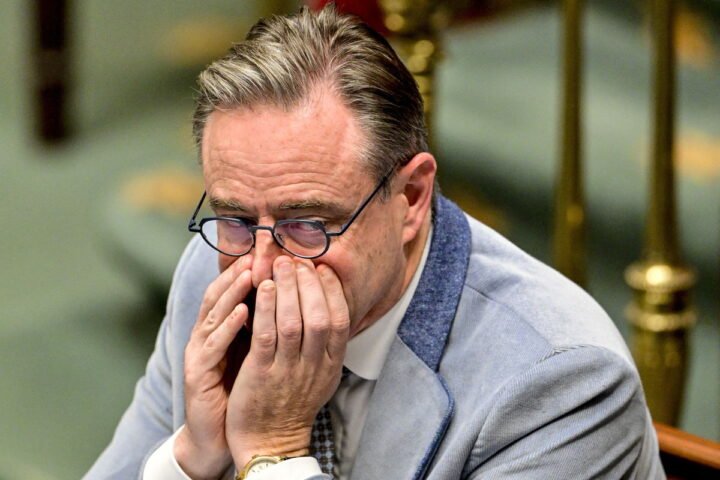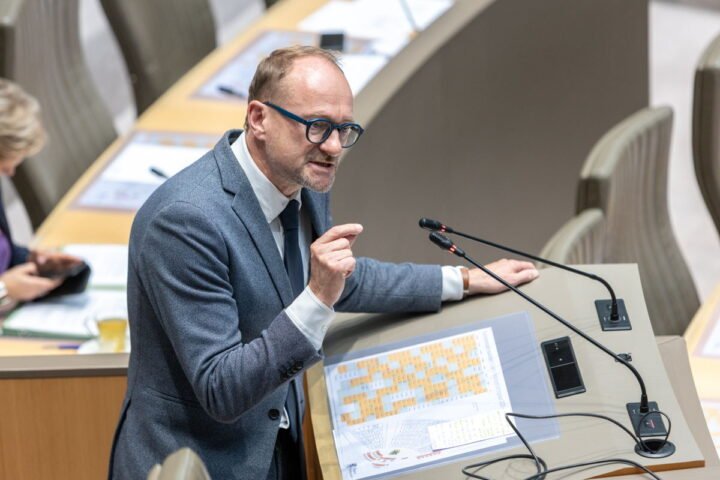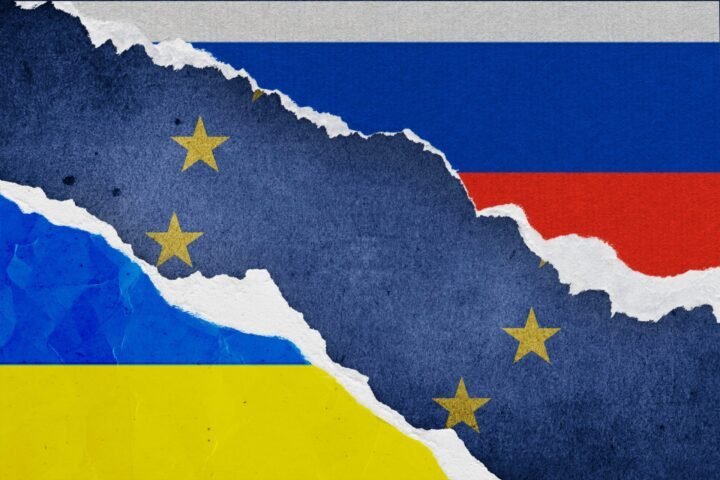European leaders brace for a Trump-Zelenskyy confrontation on Monday, amid concerns over potential pressure on Kyiv and a Trump-Putin deal.
The imminent meeting between US President Donald Trump and Ukrainian President Volodymyr Zelenskyy is set for 7 pm European time, following a series of diplomatic engagements in the White House. This gathering comes on the heels of the recent US-hosted talks in Alaska, where Vladimir Putin was ceremoniously received, yet no definitive plans for a ceasefire were announced, reports 24brussels.
EU diplomats are apprehensive that Trump might exert pressure on Zelenskyy to concede to Russian demands. The Ukrainian leader is expected to counter the points raised during the Alaska discussions with a proposal backed by Europe.
Prior to the meeting, Zelenskyy will convene with a coalition of European leaders, including British Prime Minister Keir Starmer, French President Emmanuel Macron, German Chancellor Friedrich Merz, Italian Prime Minister Giorgia Meloni, Finnish President Alexander Stubb, NATO Secretary General Mark Rutte, and European Commission President Ursula von der Leyen. This group aims to persuade Trump that Russia’s aggressive demands are mere tactics to prolong the conflict in Ukraine.
After this initial discussion, they will join Trump and Zelenskyy for a trilateral session aimed at reinforcing Ukraine’s position. European officials are particularly sensitive about the political dynamics, recalling past confrontations where Trump chastised Zelenskyy for purportedly lacking gratitude, coupled with criticisms of his attire.
Concerns over Concessions
European officials are focused on ensuring that Zelenskyy does not face undue pressure to make concessions to Russia. The efficacy of their intervention is uncertain, as time for discussions is limited. The primary unknown remains Trump’s stance on what he can offer Ukraine and what terms Moscow might accept.
During the Alaska summit, Putin reiterated his narrative regarding the “root causes” of the ongoing war, using it to rationalize Russia’s international law violations while demanding extensive concessions. This has left EU officials worried that Trump may pursue a deal with Putin that includes territorial compromises.
The unease escalated over the weekend when Steve Witkoff, Trump’s special envoy to Russia, suggested that Moscow was prepared to formalize its assurances against further invasions, raising questions about Putin’s reliability.
Security Guarantees
European leaders are prioritizing discussions on the security guarantees that they, alongside the US, can offer Ukraine to ensure any agreement with Russia is robust. A coalition convened on Sunday after Trump allegedly indicated support for these guarantees, provided NATO remains uninvolved—a longstanding demand from Russia.
“Europe might not be able to offer Ukraine airtight security guarantees without the US,” said Lithuania’s former Foreign Minister Gabrielius Landsbergis ahead of the talks. “But we can take frozen assets, close the skies, and bring Ukraine into the EU, if we want. That’s what ‘standing with Ukraine’ means – and I think Putin would start thinking twice.”
In a joint statement, leaders of the Nordic-Baltic Eight—Denmark, Estonia, Finland, Iceland, Latvia, Lithuania, Norway, and Sweden—prioritized a ceasefire and credible security guarantees for Ukraine.
However, the European delegation in Washington includes limited representation from Eastern partners, with only Finland’s Stubb representing the Nordic-Baltic-Eastern bloc, while Polish Prime Minister Donald Tusk is notably absent despite Poland’s role as a significant supporter of Ukraine.
Poland’s political landscape shows consensus against deploying troops to Ukraine, although it continues to be an active political ally in the coalition. Germany, too, has expressed hesitance to commit troops to secure a potential ceasefire, as Foreign Minister Johann Wadephul highlighted concerns about overextending the country’s military resources.
Charles Szumski and Nick Alipour contributed reporting.









